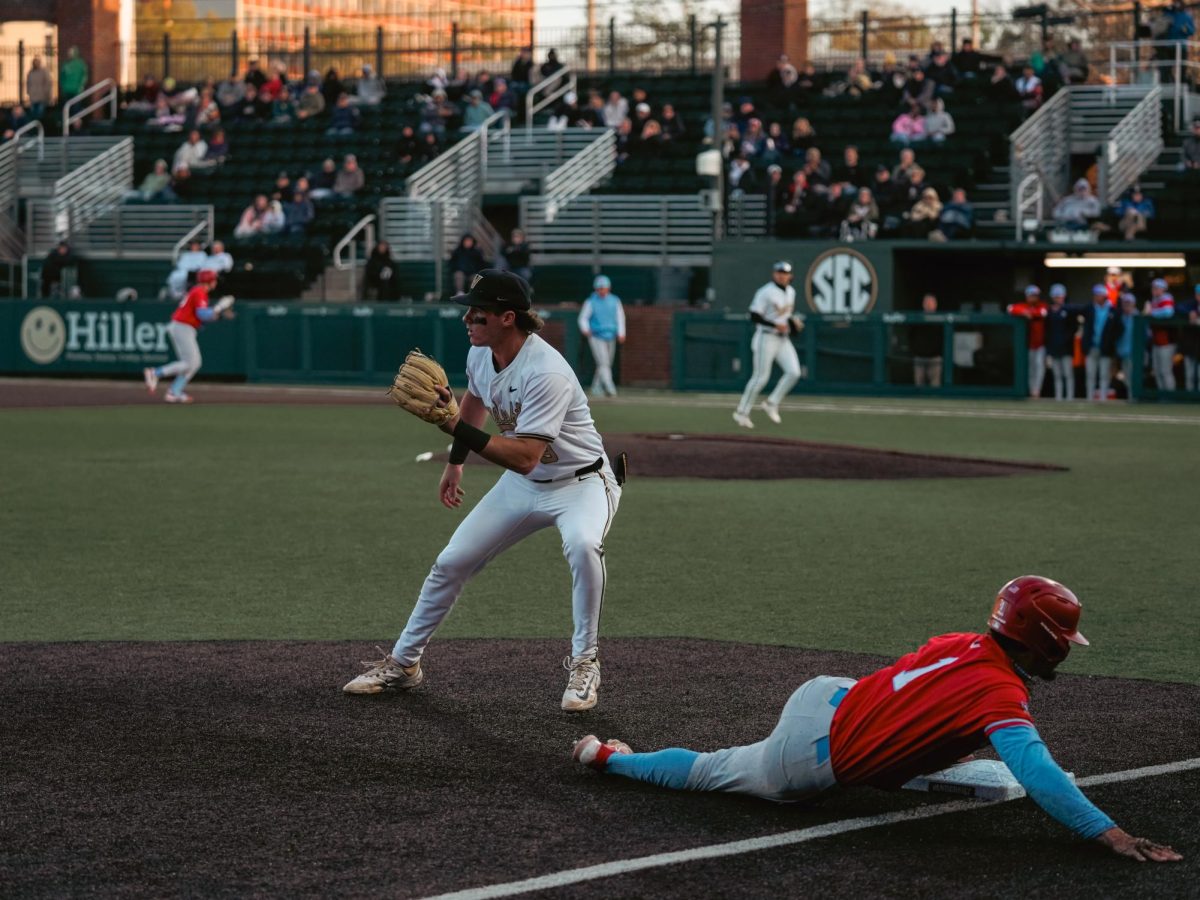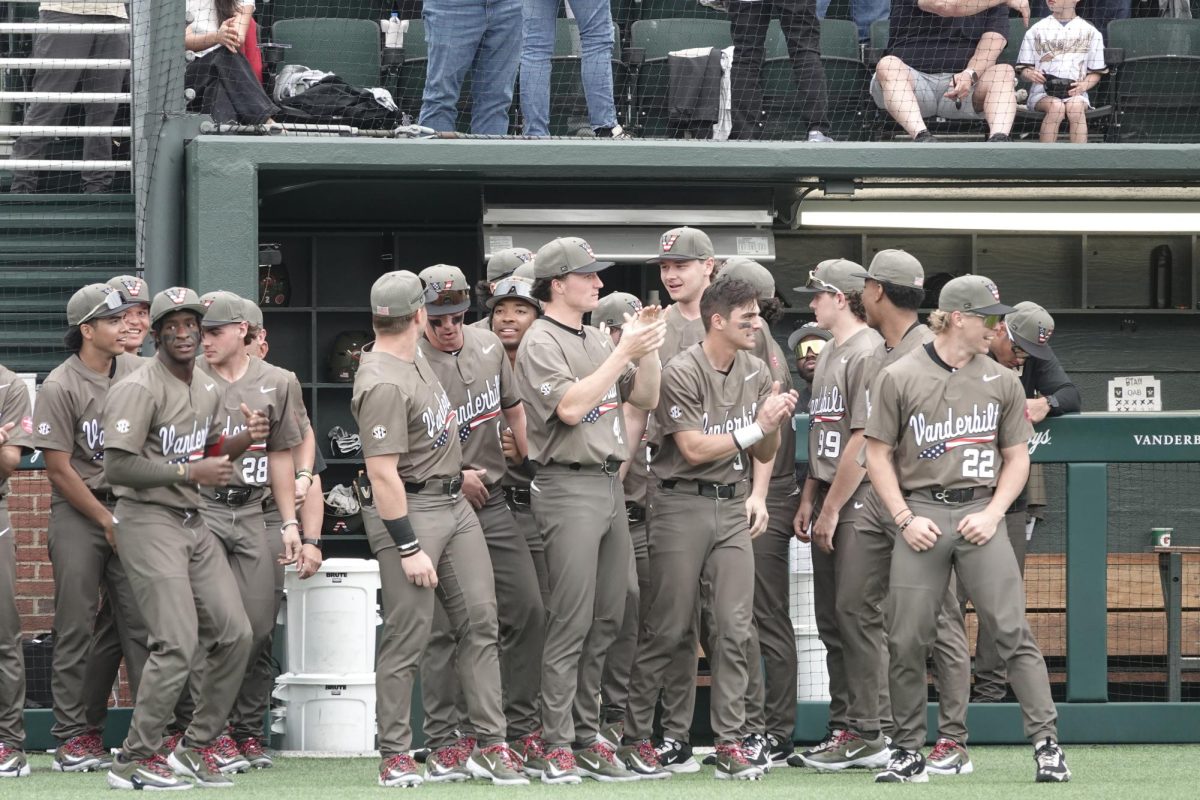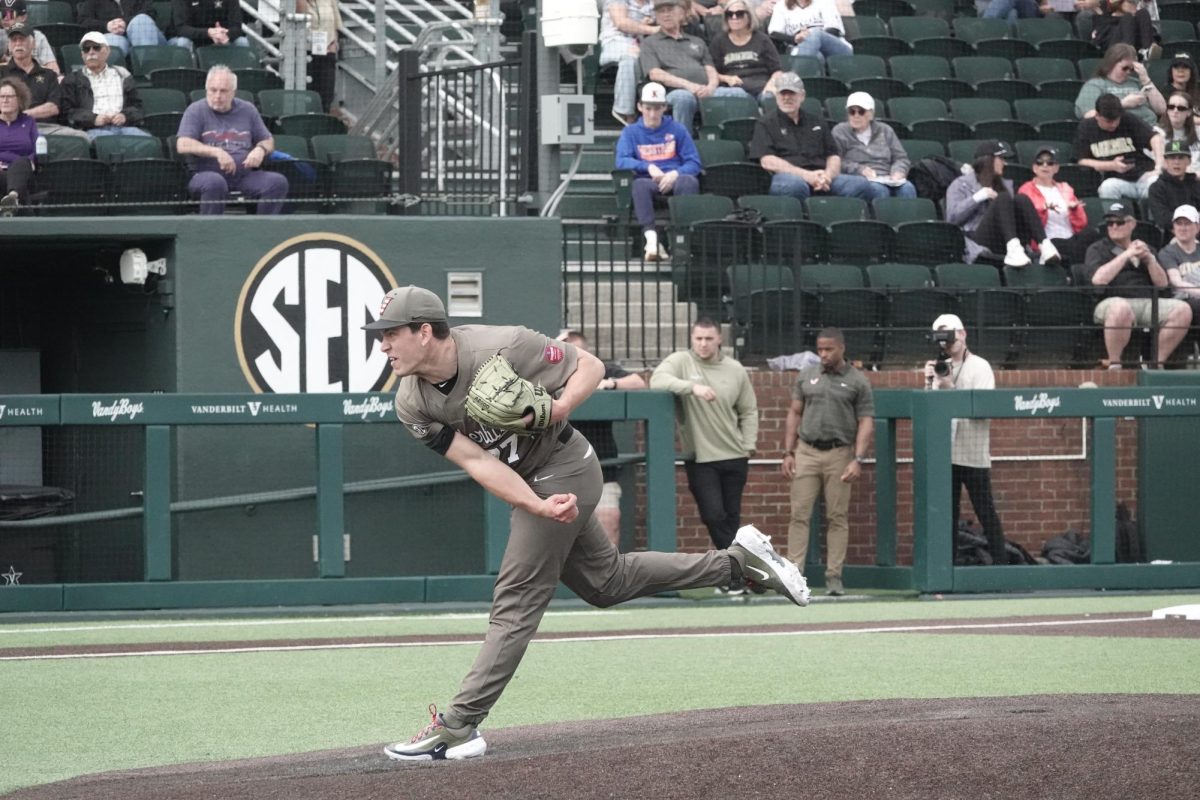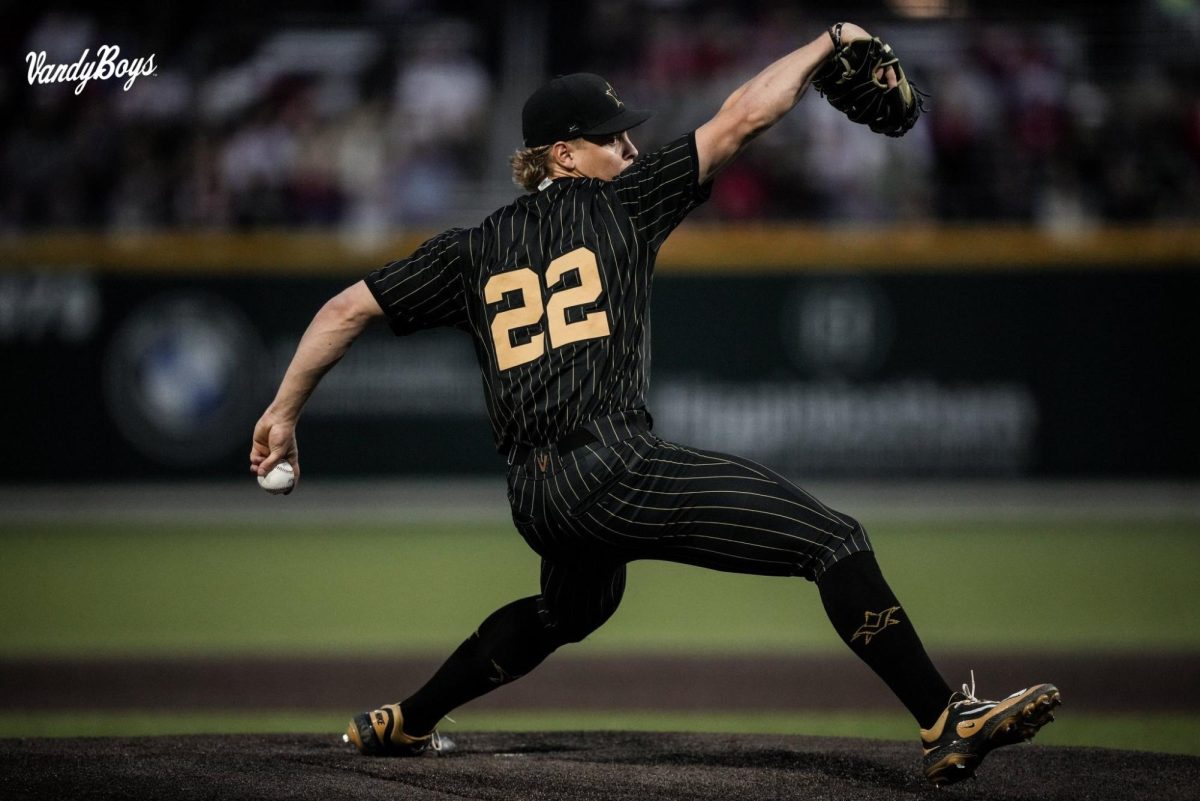For over two decades, head coach Tim Corbin has been the architect of one of college baseball’s greatest success stories. He hasn’t just won at Vanderbilt — he transformed the program from a national afterthought into a perennial powerhouse, delivering five College World Series appearances and a pair of national titles along the way.
But Vanderbilt isn’t just any college baseball program. Its facilities rival those of pro teams, using TrackMan technology for advanced player analytics. Its cutting-edge pitching lab, surplus of NIL collective money to spend and national brand that Corbin has built should make this team a powerhouse, year in and year out.
And in some ways, it is. The Commodores churn out draft picks more than almost any team in college baseball — leading the nation with nine alumni on MLB opening day rosters in 2025. They regularly enter the season ranked. They’ve got arguably the best culture in the sport — a culture that Corbin built from scratch when he took over in 2003 and continued to grow stronger each year.
But in the SEC, history and culture can only take you so far. Playing in this league means facing the top collegiate players in the country. It means consistently facing 98 miles per hour from the mound on any given Friday, Saturday or Sunday. It means dealing with hostile crowds, future pros and rosters stacked with players who hit 20 home runs each year. This isn’t 2014 anymore: This is the most competitive, talent-rich era of collegiate baseball ever witnessed.
Despite all the tools that Vanderbilt has, it hasn’t reached an NCAA Super Regional since 2021. In SEC play, the Commodores’ offense consistently ranks near the bottom of the conference. They were swept by Arkansas at home two weekends ago, and the difference in firepower was impossible to miss.
So, why does Vanderbilt look stuck in second gear? It’s less of a recruiting problem — Corbin still lands top-tier talent, even if some players go straight to the MLB Draft — and more of a development issue. Where Vanderbilt truly lacks is in how it unlocks offensive talent once players arrive on campus.
Simply put, Corbin’s hitting philosophy is outdated. While the rest of the baseball world has embraced the new era of power hitting, the Commodores remain locked into prioritizing good at-bats, contact and a station-to-station approach.
“For good or bad, my perspective was shaped by watching ’60s and ‘70s athletes,” Corbin said in a 2024 interview with Eric Cressey.
Maybe bunting, speed and situational hitting were enough to win games 60 years ago. Even 10 years ago, it might have enabled a team to compete in the SEC. But in 2025, it’s just not good enough — especially not in a league dominated by elite arms and explosive offenses.
Look no further than the series against Arkansas. Vanderbilt hit one home run in the entire series. Arkansas hit eight — four of which came from former Commodore Cam Kozeal. That doesn’t just sting; it perfectly embodies everything wrong with Vanderbilt’s current approach. Kozeal’s OPS has jumped over .200 points since leaving Vanderbilt, and he suddenly looks like a legitimate power bat. Why couldn’t Vanderbilt get out of him what another program could?
There are countless other examples. Braden Holcomb — a top-40 recruit in his class, largely due to his power potential — is not only failing to hit balls over the fence but is barely even seeing the field. Even RJ Austin, the team’s best pure hitter and emotional leader, has seen his home run total decline each year under Corbin and has hit just one so far this season.
Even in this past weekend’s series sweep in Gainesville, Vanderbilt’s pitching and defense carried the load. Florida — now 1-11 in SEC play — hit just two home runs all weekend, a credit to the Commodores’ arms but also the reason why the Black and Gold’s lack of power and offensive shortcomings weren’t fully exposed. Corbin’s small-ball approach might be enough to get by against the bottom of the conference, but it’s not built to survive against stronger opponents.
This is not a new phenomenon. Vanderbilt has finished in the bottom six of the SEC in home runs in four of the last five years — and the bottom two in three of those four. No player eclipsed 16 home runs since JJ Bleday in 2019, the last true successful power hitter that Corbin developed. Even Spencer Jones, a prolific power hitter in the New York Yankees farm system, never hit more than 12 home runs under Corbin.
Corbin’s philosophy manifests most visibly in how he has managed the designated hitter spot this season. While most teams use the spot for an extra power threat, Vanderbilt is running out backup catcher Mac Rose — who has just four extra-base hits all season. After the March 29 game against Arkansas, Corbin explained the decision.
“[Rose] doesn’t overthink — he’s got a good approach, he sees the ball well, he’s not jumpy and he doesn’t try to do too much. He’s a good little hitter and is the right fit for that position,” Corbin said.
Those are fine traits — for a utility player. But when there’s a slugger like Holcomb on the bench hitting .316 with a .474 slugging percentage in SEC play, it’s hard not to see this as a philosophical failure.
When Corbin let go of hitting coach Mike Baxter and assistant Tyler Shewmaker last offseason in favor of Jayson King and Ty Blankmeyer, it felt like a step in the right direction — a reset that would give the program a chance to modernize. But over halfway through the season, it’s clear that not much has changed. The same conservative, old-fashioned approach still defines the Commodores’ offense. Whether that’s because of Corbin’s influence or the new staff’s beliefs is hard to say, but either way, the results are the same — and concerning.
This isn’t a call to erase everything that Corbin has built. His culture matters. There is undoubtedly value in the type of old-school coaching he brings and much more to hitting than power — even analytics can’t tell the entire story. However, it’s time to stop preaching “pass the baton” and start telling hitters to swing with intent. Vanderbilt’s hitting coach shouldn’t just understand modern baseball analytics — bat speed, launch angle and data-driven training — he needs to believe in them. Stop teaching guys to let the ball travel, work the count and hit the ball to all fields. Simply let them go out there and mash.
Other programs are already doing this. Vanderbilt is not.
College Baseball Pitching Staff x Bombers. A look at the RPI Top 100 in ERA/FIP/xFIP by Home Runs per Nine pic.twitter.com/IkxncLWt4j
— Collin Wilson (@_Collin1) April 3, 2025
It’s still possible to win with pitching and defense as the backbone (and Vanderbilt’s pitching staff has been crucial this year). But in today’s game, if you don’t slug, you don’t survive. Sometimes, it’s that simple. Vanderbilt has too much tradition and too many resources to be left behind, but until the program modernizes its hitting philosophy, that’s exactly what will happen.















richard • Apr 11, 2025 at 11:14 am CDT
No matter what happens from this day forward, Corbs will always be a legend. And as an alumni and fan, I am eternally grateful. But like a lot of college coaches in various sports, he has failed to adapt to changing times. It is difficult to rapidly change a philosophy that has achieved success. But now, the seasons are passing, giving him a chance to recognize that times have changed. What makes it more difficult to watch, is that he has, like the article states, every advantage
Dylan Tovitz • Apr 13, 2025 at 7:51 pm CDT
He has done so much for this program and truly is a legendary coach. And I still think he’s the guy who should be at the helm. He just needs to incite some sort of organizational shift on the offensive side to account for the game evolving. There is a recruiting aspect to this as well, though I believe development and philosophy is the bigger issue.
Jack Musterman • Apr 9, 2025 at 7:56 pm CDT
Thank you for finally writing what has been painfully obvious for the last 4 yrs. Like all elite college and professional sports the game naturally evolves because of greater athletes, training and analytics. Coaches must accept, embrace and implement each of these factors into team performance. Those that don’t will continue to play 500 ball in the SEC, make the NCAA tourney on the strength of their conference and get beat in regional. It’s adapt or get gone.
Dylan Tovitz • Apr 13, 2025 at 7:49 pm CDT
Thank you for the kind words and I couldn’t agree more. He is a legend and has been a phenomenal coach, but there has to be some sort of shift if Vandy wants to keep up. Even today you see the benefit of playing a guy like Holcomb and letting him get hot. But the lack of offensive firepower in the first two games kept them out of it, no matter how good or bad the pitching was.
Chuck Thum • Apr 8, 2025 at 6:41 pm CDT
There definitely is something to the…. hit the pitches you like and hit them hard philosophy. Pitchers hate hitters who step into the box and are up there to smack your strikes.
Dylan Tovitz • Apr 13, 2025 at 7:52 pm CDT
Yup. At this level you’re lucky to get one mistake pitch in at at-bat, and those are the pitches that need to be hit into the gaps and over the fences.